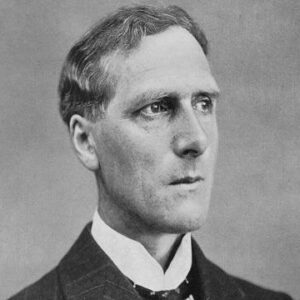Arthur Keith was a well-known Scottish anthropologist and anatomist who made significant contributions to the study of human evolution. He was born into a humble family with an agricultural background, but he was always interested in his studies and graduated with a degree in medicine. Charles Darwin’s works had a tremendous influence on him, and he decided to pursue anthropology as a career. According to Arthur Keith, the human species evolved in accordance with nature’s evolutionary harvest. He also gave his thoughts on the formation of human society as a result of rivalry fueled by patriotism, resentment, retribution, morality, leadership, and nationalism, among other things. He authored almost 500 papers in the fields of human anatomy and evolution. In his research, he also mentioned cultural differences as a barrier to interbreeding between groups, and he coined terms like ‘in-group’ and ‘out-group.’ Many people consider Arthur Keith to be the “Father of Modern Nationalism.” In the discipline of anthropology, his results and theories were warmly appreciated, and he was knighted for his contributions to science.
Childhood and Adolescence
Arthur Keith was born in Aberdeen, Scotland, on February 5, 1866, to John Keith and Jessie MacPherson. He was the sixth of 10 children in their family.
Arthur Keith was motivated by naturalist Charles Darwin’s book ‘Origin of Species’ as a child, and he decided to pursue a career in medical science.
He entered the University of Aberdeen’s Marischal College in 1884 and graduated with a Bachelor of Medicine degree in 1888. He was mentored by renowned botanist James Trail and anatomist John Struthers while at university.
He began studying anatomy at the University of Aberdeen and University College London in 1892. He received his first honor, the ‘Struthers Prize,’ for his demonstration of ligaments in humans and other apes while at the University of Aberdeen.
He received an MD from the University of Aberdeen in 1894 for his thesis, ‘The Myology of the Catarrhini: A Study in Evolution.’ He was elected a fellow of the Royal College of Surgeons in England in the same year.
A Career of Arthur Keith
Arthur Keith started his work after graduating in 1888. He was assigned to a mining firm in Siam as a medical officer. His initial motivation for taking this work was to gather and study numerous flora species, but his interests eventually changed to human evolution and anthropology. He worked there for three years before returning to school to further his education.
Arthur Keith was hired as the senior demonstrator of anatomy at the London Hospital in 1895 after receiving his doctorate in medicine and a fellowship, and in 1899, he was elected the Head of Department.
In 1897, he wrote ‘An Introduction to the Study of Anthropoid Apes.’ Between 1897 and 1900, he compared and studied the anatomy of fossil and contemporary monkeys, compiling his findings. These works, albeit unpublished, formed the groundwork for his well-known books and research achievements.
Arthur Keith and his student Martin Flack made a startling discovery in 1906. The’sinoartrial node,’ also known as the natural pacemaker, was identified to be the component in the heart that causes it to beat.
Arthur Keith was named president of the Royal Anthropological Institute of Great Britain shortly after receiving the chairmanship of the prestigious Royal College of Surgeons in 1908. Between 1912 and 1914, he served in this capacity for two years. His work, ‘Ancient Types of Man,’ was released in 1911.
He was made a fellow of the Royal Society in 1913, and a few years later, in 1917, he was appointed Fullerian Professor of Physiology at the Royal Institution in London. He remained in this position until 1923. In the year 1921, he was knighted while serving in this position.
In 1927, the British Association for the Advancement of Science elected Arthur Keith as its president. He was chosen president of his alma mater, the University of Aberdeen, in 1930, and served for three years.
Arthur Keith contributed in the construction of a research institute in Kent, where Charles Darwin formerly resided, in 1931. He was named master of the institute the following year, and he remained there for the rest of his life.
Major Projects of Arthur Keith
Arthur Keith is a well-known anthropologist who is interested in studying human fossils and the evolution of human society. ‘Evolution and Ethics’ (1945) and ‘A New Theory of Human Evolution’ are two of his key publications in the subject of anthropology (1947).
In 1906, he and his student Martin Flack discovered the’sinoartrial node,’ the natural pacemaker of the heart that is responsible for the commencement of the heartbeat.
Achievements & Awards of Arthur Keith
In 1921, King George bestowed knighthood on him.
Personal History and Legacy
In the year 1900, Arthur Keith married Celia Gray.
He died on January 7, 1955, at the age of 89, in Kent, England.
Estimated Net Worth
Estimated net worth of Arthur Keith is unknown.


